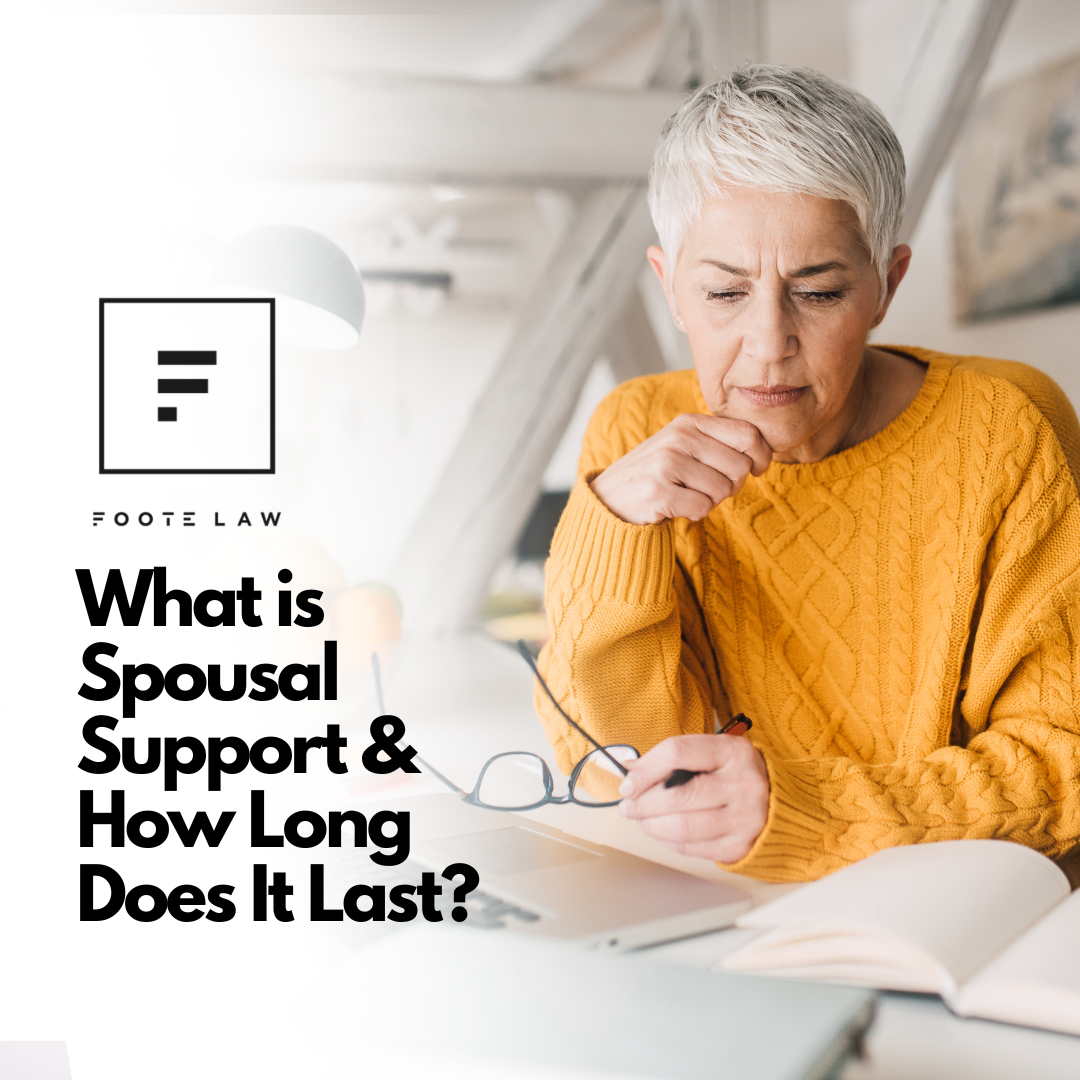What is Spousal Support & How Long Does It Last?

What is Spousal Support?
Spousal support is a payment from one spouse to the other when the parties separate. You may be entitled to it if you and your spouse are separating or getting legally divorced. It is a particularly fluid and technical area of family law. It can be payable by either spouse in a legal marriage or in a common law relationship.
However, spousal support in Ontario is not a guaranteed or automatic part of the separation proceedings. It needs to be reviewed, negotiated and agreed to by both parties or ordered by a court.
When is it Time for a Family Lawyer?
If you and your spouse cannot agree, or if one party is unwilling to pay, you may need to consult a family lawyer. With no agreement, you may need to initiate court proceedings where a judge will determine whether either party has a claim and the appropriate amount of support payable and enforceable.
Spousal Support in Ontario
Spousal Support in Ontario is determined starting with the government’s Spousal Support Advisory Guidelines (“SSAG”). These guidelines are not law but rather used to help determine how long it should last and how much you are entitled to. The SSAGs are largely based on the length of your marriage or cohabitation (for common law spouses) and the disparity in the parties’ incomes.
In addition, the SSAG will use two formulas to calculate support payments: “Without Child Support” and “With Child Support.”
Spousal Support With Children
If you have children together, the children’s rights to financial security are calculated first. The amount and duration of spousal support will depend on factors such as:
- how many children you must support, and the age of the children
- who has been the primary caregiver in the family and whether you sacrificed your income-earning ability during the relationship to care for dependent children
- whether or not you worked outside the home
- your age, your health, and your ability to support yourself after the separation
- whether or not there is a large difference in income
When determining the duration of spousal support, in most cases, the duration of the marriage and the ages of the children (if any) will be used to establish a range of years a party may require it. Other factors taken into consideration include the recipient spouses’ ability to earn income after separation and shared assets (such as property) and debts.
Spousal Support Without Children
If children are not part of the equation, support is calculated based on how long you lived together and differences in income. The duration can range from one-half to one year of support for every year you married or lived together as common-law spouses. The duration could be indefinite if this time period is twenty years or more. This is to reflect the diminished earning capacity as people age and retire.
It’s the Court’s Decision
Ultimately, the courts have discretion in determining how much one should receive. For example, in cases where one spouse earns a high income of $350,000 or more, the simplified formula will not be used because it tends to produce unequal results. The same goes for low-income earners with an annual income of $20,000 or less, as they are unlikely to be able to pay any spousal support.
Spousal support terms can be changed over time, and agreements can be updated if a material change in circumstance has occurred. For example, if you or your former spouse’s income changes significantly, or if the person receiving support is now earning more and able to support themselves, the terms may be revisited. Or if the recipient remarries, this might also trigger a material change in circumstance.
How Can Foote Law Help?
Spousal support is a particularly technical and fluid area of family law and has implications under the Income Tax Act. Foote Law always puts family first and will do detailed due diligence to find the best solution to your situation. If you have any questions about spousal support in Ontario, contact our team of dedicated law professionals today. We are experienced in spousal support cases and will work with you to determine your rights and obligations.



Recent Comments